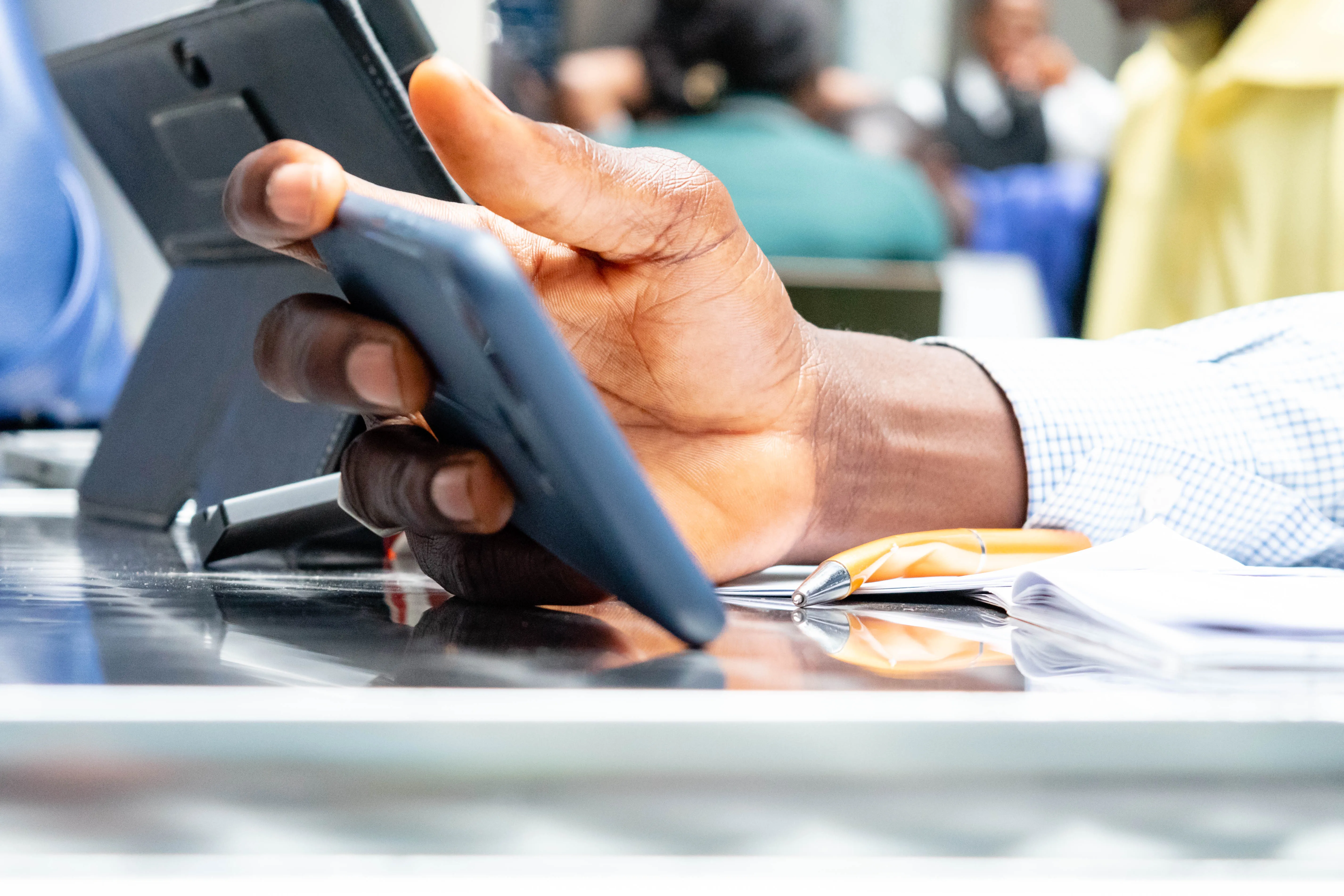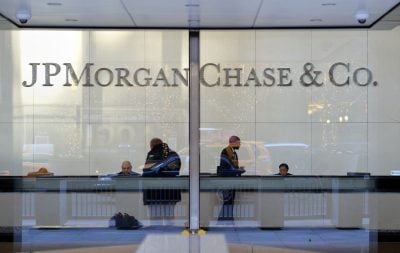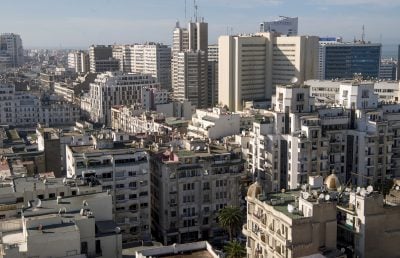A roadside trader in Kenya’s jua kali (“hot sun”) informal sector goes onto her mobile phone before dawn to borrow working capital using the M-Shwari app to pay suppliers for the goods she will sell that day.
She may go for a microloan of between KSh3,000 and KSh9,000 ($27-$81), and usually repays the same day or within 48 hours to build her creditworthiness. The working capital helps grow her micro-business.
The Covid-19 pandemic is accelerating the arrival of the future in Africa. Digital services are critical for lockdowns and working from home, leading to a huge surge in data traffic, especially through mobile networks that offer millions of Africans access to the internet.
According to The Mobile Economy Sub-Saharan Africa report launched in September by global industry body GSMA, mobile technologies and services generated 8% of the economic activity (measured by gross domestic product or GDP) in sub-Saharan Africa in 2020 by contributing more than $130bn of economic value added.
This was made up of $31bn from the mobile operators and $7bn from other industry stakeholders. Indirect benefits made up $11bn and productivity gains brought $83bn of benefits, according to GSMA. The economic contribution is set to grow past $150bn by 2025, including more benefits from improved productivity through mobile services.
The report finds that 300,000 people have formal jobs in mobile telecoms in sub-Saharan Africa, and the sector supports another 1.1m livelihoods in the informal sector and 1.8m other jobs.
Tax revenue is estimated at $15bn through consumer taxes such as value-added tax and sales tax and $5bn through corporate and employment taxes.
Investment for resilience
Through the pandemic, mobile network operators have kept services resilient by stepping up investments in network capacity.
Annual capital investment (capex) in the mobile telecoms industry in sub-Saharan Africa will be between $7.4bn and $7.7bn each year over 2020-25, for a total $45bn, reports GSMA. Other analysts say there is enough demand to offer high returns for $15bn a year of investment, especially in Africa’s fast-growing urban areas.
In 2020 revenue in the mobile industry was $44.2bn, up 9% on 2019, and in 2021 GSMA forecasts $49.5bn, up another 12%. Growth may slow to under 5% per year, but revenues are forecast at $56.2bn in 2025.
Investment risks include changing technology, increasing competition, changing customer needs, difficulty creating business models and regulatory uncertainties including tax and licensing disputes.
Providing connectivity
Much of the huge investment is out of sight, some of it hidden under ocean waves. Since 2000, at least 19 subsea cables have been laid to bring internet connectivity to Africa and several more have been announced in recent months.
Facebook is rolling out 2Africa, the world’s longest subsea cable at 45,000km that will connect Europe, Africa and Asia. Google has also announced $1bn of investments over five years, including a subsea cable named after Nigerian-born 18th century writer and abolitionist Olaudah Equiano.
The cables will provide connectivity to Africa’s fastgrowing 1.38bn population and allow tech giants such as Google, Facebook and others to boost their own capacity and links to data centres. Currently, onshore networks often provide much lower capacity and many African countries are among the world’s slowest for average internet download speeds.
2Africa’s reach will be extended into central Africa. In July Facebook and Liquid Intelligent Technologies, controlled by Strive Masiyiwa’s Econet, announced a 2,200km fibre network from the Atlantic, through DRC to East Africa and the Indian Ocean, to link more than 30m people in central Africa.
Building and operating cross-country fibre, base stations and new technologies such as open radio-access networks (RAN) continues to attract investors and projects are being implemented even where the terrain is challenging.
African Mobile Networks, which offers connectivity in rural towns and villages, targets 20,000 base stations across 30 countries to serve 60m people. In July it announced a $36m funding round led by private equity fund manager Metier, following $25m of previous funding from Intelsat.
Private equity leads the way
As governments and companies switch to outsourcing their data centres to the network of privately-operated specialist data centres, private equity investors are leading the way.
In March 2020, Kabir Chal, director at private equity house Actis, told the Financial Times: “If you look at the trends around data, data consumption, cloud migration globally — those trends have played out in many markets and have led to significant growth of the data centre sector. Africa is no different: you see digitisation, the inexorable migration to cloud, and really the advent of big data but, as a consequence, the supply of data hasn’t kept up.”
Indeed, Africa is behind the rest of the world in the rollout of 5G. It is still catching up on 4G, which amounted to 15% of connections in sub-Saharan Africa by June 2021, compared to 57% globally, according to GSMA. 4G connections are expected to double to 28% in 2025, reflecting improved device affordability.
For 5G, GSMA forecasts only 35m connections with 3% adoption by 2025, compared to 63% in North America and 52% in Greater China.
Driving the demand for more infrastructure is the increasing use of applications to bring digital technologies into the heart of a huge range of business activities. Africans are often quick to adopt new digital technologies and the ability to reach new consumers and future entrepreneurs with low-cost transactions is a key goal.
Fintechs on the rise
Digital financial services including fintechs continue to attract investor interest and Africa measures several “unicorns” – tech startups that have a market value of over $1bn. They include Senegal’s fintech Wave which raised $200m in a Series A funding round for a $1.7bn valuation.
It follows Nigerian fintechs OPay, Flutterwave, and Interswitch, as well as Egypt’s Fawry. US-based tech company Andela, which was founded in Nigeria, is now valued at $1.5bn after raising $200m in a Series E funding round in September.
The mobile money fintech space is particularly exciting. Sub-Saharan Africa is the world’s top user of mobile money. In 2020 there were 548m registered accounts of which 159m were active, and users transacted $490bn. By comparison, South Asia had 305m registered accounts of which 66m were active and $131bn in transactions, while the Europe and Central Asia region had 21m registered accounts of which 4m were active.
In many sectors, digital platforms are removing inefficiencies in business models and helping economies develop. African startups are transforming education, healthcare and financial services.
E-commerce has also ballooned during the Covid-19 crisis, with e-commerce giant Jumia reporting a 50% increase in transactions in the first half of 2020. Africa has over 1,200 digital platforms, of which 80% are in Nigeria, South Africa, Kenya, Egypt and Ghana.
Deals galore
The giant investment flows that are fuelling the roll-out of technology and telecoms infrastructure include high yield bonds, private equity and family offices, direct investment by multinationals and most recently a spate of listings.
In March Liquid Intelligent Technologies closed a $620m five-year bond with a coupon of 5.5% which it used to roll out infrastructure, including 10,000km of network within five months.
A group of financiers led by Gemcorp have given a $105m syndicated loan to US-owned Africell, with 12m mobile subscribers in Gambia, Uganda, DRC, Sierra Leone and other countries, so it can develop its mobile network in Angola.
Nigeria has attracted more than $1bn in venture capital investment in the last two years, including $400m in one week in 2019. It is aiming to claim the crown from Nairobi as the heart of innovative fintech in Africa, spurred by its fast-growing population.
Private equity houses have long been key players in strategic tech investments. In 2021, Old Mutual-owned African Infrastructure Investment Managers’ (AIIM) AAIF3 pan-African infrastructure fund acquired a majority stake in Ghana’s Ngoya Etix data centre.
Actis is investing $250m over three years, starting with a controlling stake in Rack Centre in Nigeria, which connects over 30 telecoms operators in the region, including Orange, MTN and Airtel.
Many owners of telcos have been raising capital by selling and listing shares on stock exchanges, deepening the domestic capital market by increasing the number of shareholders and offering profitable, well-run businesses for investors.
The drive to join the exchanges initially came from different policymakers and regulators who made listing a condition of licences or added it to regulations.
MTN is one of the pan-African giants that has taken most advantage of the trend, and has already sold some shares in subsidiaries and listed them in Nigeria, Ghana and Rwanda. Its initial public offering (IPO) for 20% of the shares in MTN Uganda, launched on 11 October, could raise $280m. It is likely to be Uganda’s biggest IPO and to increase the market from 40,000 shareholders to 200,000.
MTC Namibia is also likely to prove transformational for the Namibian capital market. The state-owned holding company is releasing shares in an IPO that launched on 20 September and will be Namibia’s biggest IPO.
On 14 October, IHS Towers raised $378m through an IPO on the New York Stock Exchange that sold 22.5m shares at $21 each, valuing the company at $7bn, although the shares later fell in price. IHS was founded in Nigeria and is based in Mauritius. It is among the world’s top four independent companies building and operating towers for mobile telecoms.
The future
Telecoms is a sector closely aligned with the vision of sustainable growth, bringing benefits to education, healthcare, financial services, productivity and job creation. Some 33m Africans are estimated to have connected to mobile internet for the first time in 2020. According to GSMA, 474m people in sub-Saharan Africa will be using mobile internet by 2025. The future remains one of huge potential.
Subscribe to Tech54, our weekly round up of news from the world of African tech.
Want to continue reading? Subscribe today.
You've read all your free articles for this month! Subscribe now to enjoy full access to our content.
Digital Monthly
£8.00 / month
Receive full unlimited access to our articles, opinions, podcasts and more.
Digital Yearly
£70.00 / year
Our best value offer - save £26 and gain access to all of our digital content for an entire year!
 Sign in with Google
Sign in with Google 



